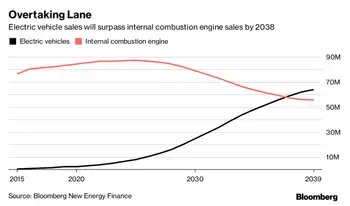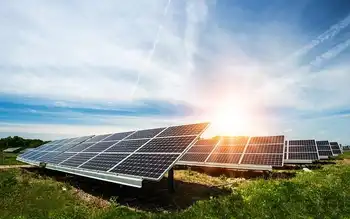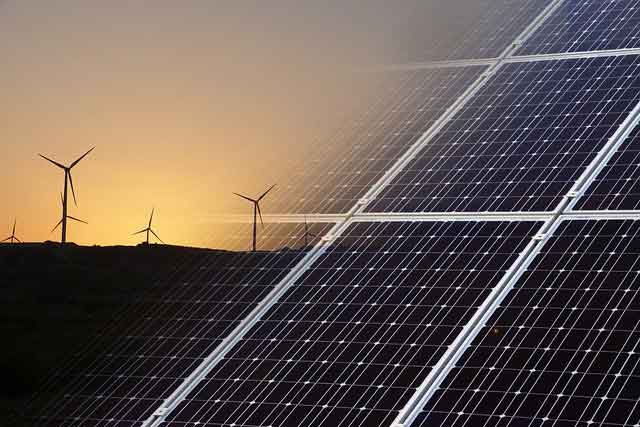Survey finds energy-use delusion
By United Press International
Protective Relay Training - Basic
Our customized live online or in‑person group training can be delivered to your staff at your location.

- Live Online
- 12 hours Instructor-led
- Group Training Available
Many of those polled in the nationwide survey have taken measures to decrease their monthly bills and save energy. For example, 73 percent always turn off lights, 57 percent replaced most incandescent light bulbs in their homes with more efficient compact fluorescent lights, 57 percent purchased Energy Star products and 52 percent have renovated their homes to stop leaks and energy waste.
With all these attempts to save energy, it's not surprising that 53 percent of Americans think they're using less energy than they were five years ago, according to a survey conducted by the Shelton Group, an advertising agency based in Knoxville, Tenn.
In reality, though, U.S. electricity consumption has steadily risen, increasing 10 percent in the last 10 years, according to the Department of Energy. There are a number of reasons for this apparent contradiction, including the growing number of appliances Americans consistently use and the "SnackWell's effect," said Suzanne Shelton, president and chief executive of the Shelton Group.
"A lot of us buy a box of SnackWell's (cookies) and think, 'They're low-fat, so I can eat all of them,' (and) then we wonder why we haven't lost weight," Shelton said. "Buying an energy-efficient product can create the same type of effect. We'll say, 'I just got a high-efficiency air conditioner; I can lower the temp and make my home even cooler in the summer.'"
Behaviors like this may be why a third of survey respondents with energy-efficient products said they had not seen the return on investment they'd hoped for. Outcomes like that can kill energy-efficiency campaigns and are largely due to lack of education, Shelton said.
"There's a willingness to be energy-efficient, but there's misinformation about how to do it," Shelton told United Press International.
That's because there's no unified, national approach and codified message, she said.
"Sadly, with all the billions of dollars (for energy efficiency) in the stimulus bill, there is nothing set aside for consumer awareness," Shelton said.
That's not a reflection of federal attitudes toward energy education, though, said David Marks, spokesman for Sen. Jeff Bingaman, D-N.M., chairman of the Senate Energy Committee, which played a key role in drafting the energy provisions of the recently passed American Recovery and Reinvestment Act.
"The stimulus was all about job creation," Marks told UPI. "It needed to be timely and temporary."
Education, while important, wouldn't have advanced the goal of this particular bill, Marks said, because it wouldn't have created many immediate jobs. However, future energy legislation may take up that issue, he said.
In the meantime, there are already a number of state and federal agencies with a myriad of programs focused on educating consumers, particularly the Department of Energy and its offshoot, the Energy Efficiency and Renewable Energy Office.
The department distributes information to the media, creates campaigns targeted toward different audiences and sponsors public-service announcements, including one in 2007 that featured characters from the Disney film "Ratatouille."
"Our emphasis is that there are ways to save energy and save on your bills while staying comfortable," said Chris Kielich, Energy Department spokeswoman. "You can't save 50 percent on your bill by doing one thing, but if you do many things, it certainly does add up."
To help consumers figure out what they can do to cut consumption, the department has set up a number of Web sites, including energysavers.gov. The site explains how to do a home energy audit and provides information on energy-efficient appliances, insulation, lighting, windows, water heaters and more. It also outlines ways to finance products and projects to increase efficiency.
The results of the Shelton Group survey don't necessarily mean these efforts aren't working, Kielich told UPI.
"The fact that someone even did a poll is good because 10 years ago, no one would have thought about it," she said. Energy efficiency "is really on people's consciousness these days."
Grassroots efforts by utility companies represent a major force driving this interest and changes in consumer behavior, both Kielich and Shelton said.
Utilities have a major incentive to get their customers to use less, said Robert Jagusch, director of energy services at the Minnesota Municipal Utilities Association, which includes 125 utility providers in the state.
"The cheapest power plant to build is the one you don't have to build," Jagusch told UPI. "We try to use conservation as a way to avoid building new power plants."
State laws also prompt power providers to push efficiency. In Minnesota, utilities are mandated to save 1.5 percent of their annual retail electricity sales. To do so, the companies hit the streets.
"For instance, we'll walk into a hardware store that sells energy-efficient lightbulbs, but you'll look up and they've got regular lighting," Jagusch said. "We'll suggest they use their own product, and often they think it's a great idea; they just never thought about it."
Many utilities also have programs that provide financial assistance for customers, particularly low-income people, to help them invest in energy-saving projects or products.
"Some of our utilities willÂ… literally pay for and install Energy Star products, like a fridge," Jagusch said.
There're a number of federal programs with the same objective. The recent stimulus bill channeled $5 billion into the Weatherization Assistance Program, a 30-year-old program that has already weatherized 6.2 million low-income homes.
There are other programs for businesses, manufacturers, builders and people who aren't considered low-income. The Alliance to Save Energy, a coalition that promotes energy efficiency worldwide, has created a Web site to help people find and utilize these tax credits at energytaxincentives.org.
The current economic downturn may bring more people to Web sites like this one and increase their willingness to conserve, but the public and private sectors may have a harder time finding the funds to keep pushing the energy-efficiency message. For instance, the main sponsor of one of the alliance's campaigns just pulled its financial support.
"It is tough in this economic condition," said Jessica Lin, communications associate at the alliance.











